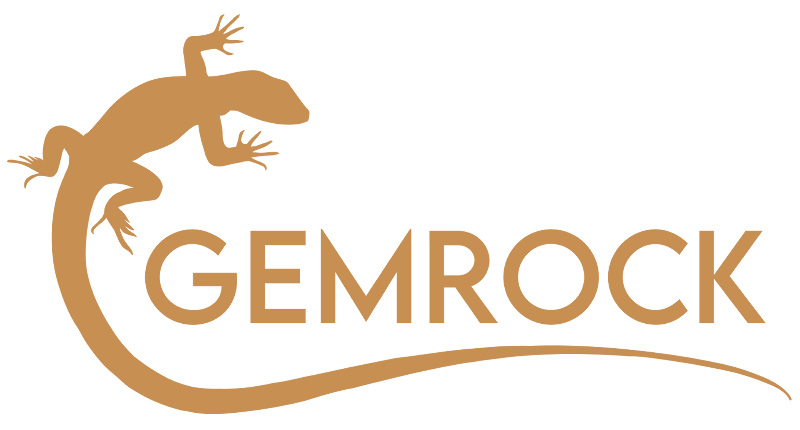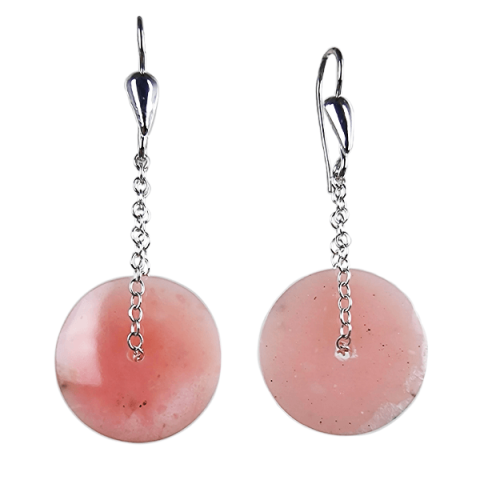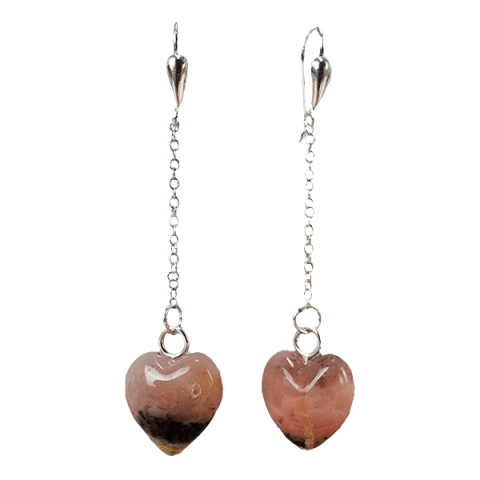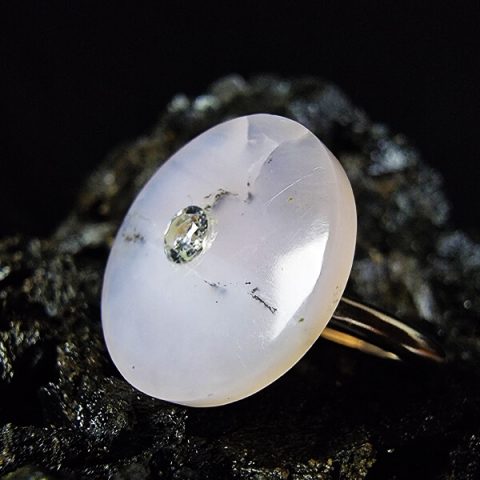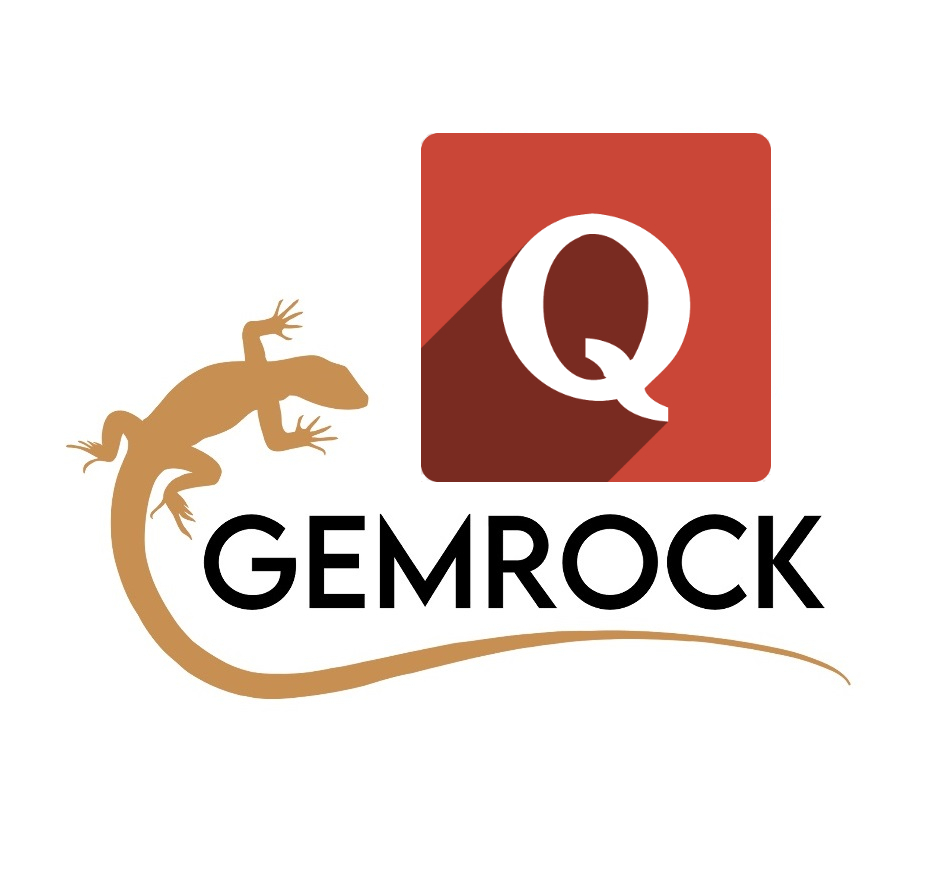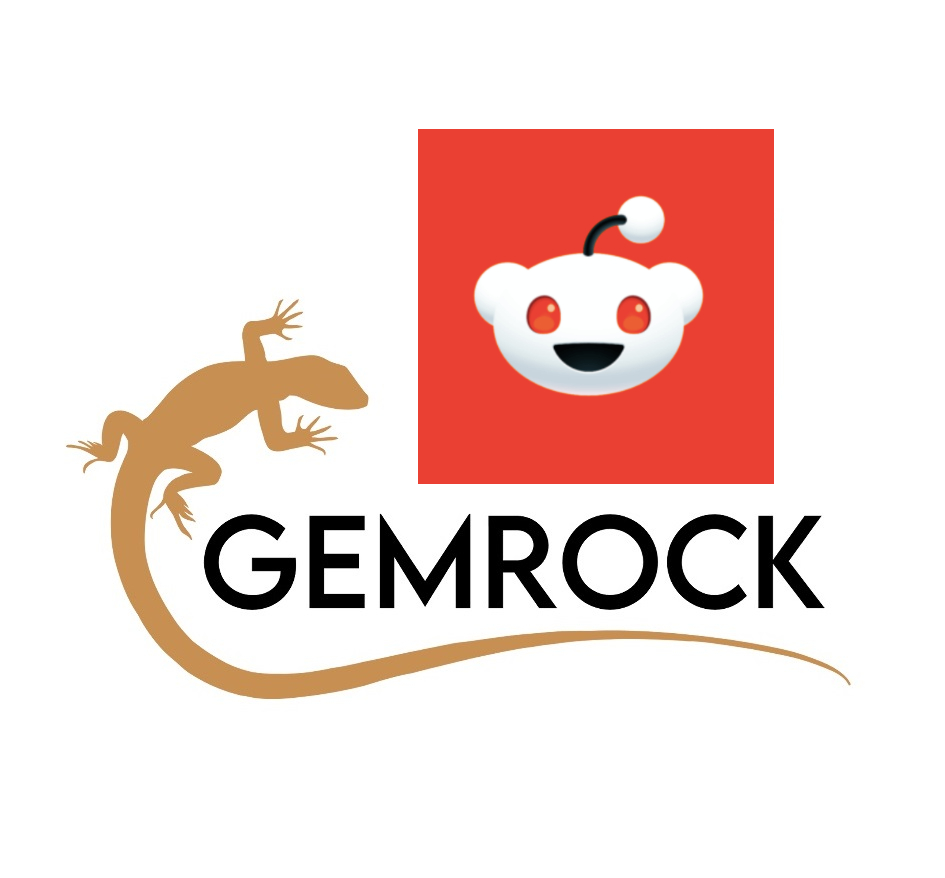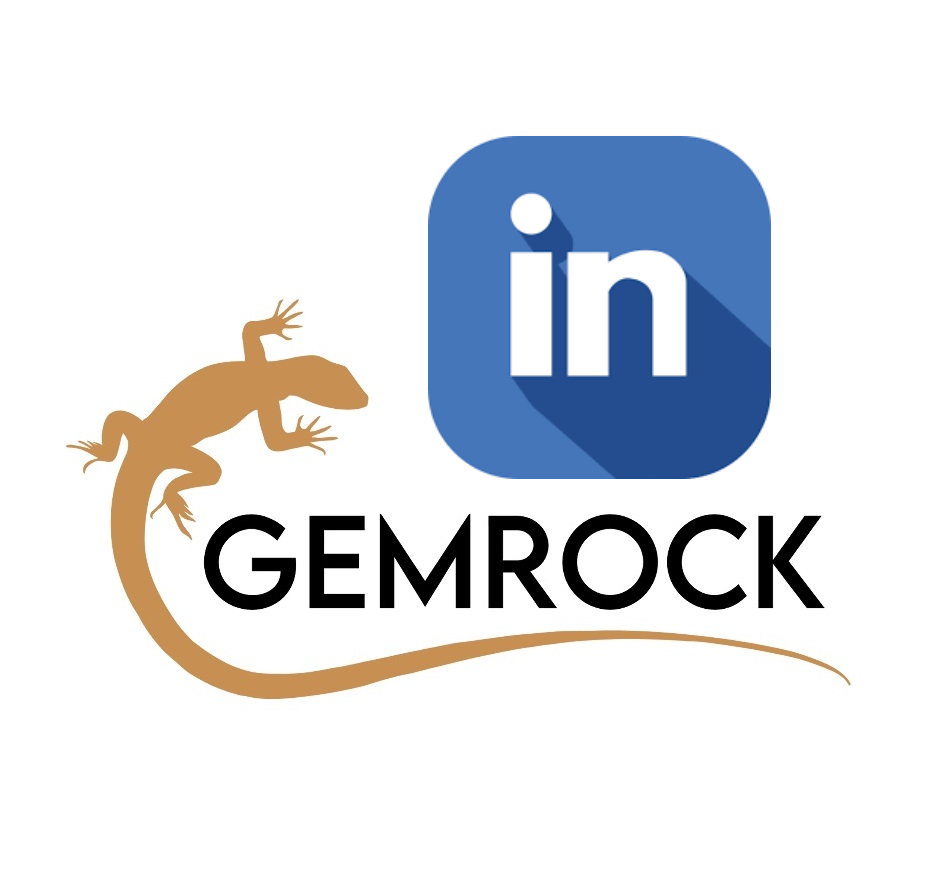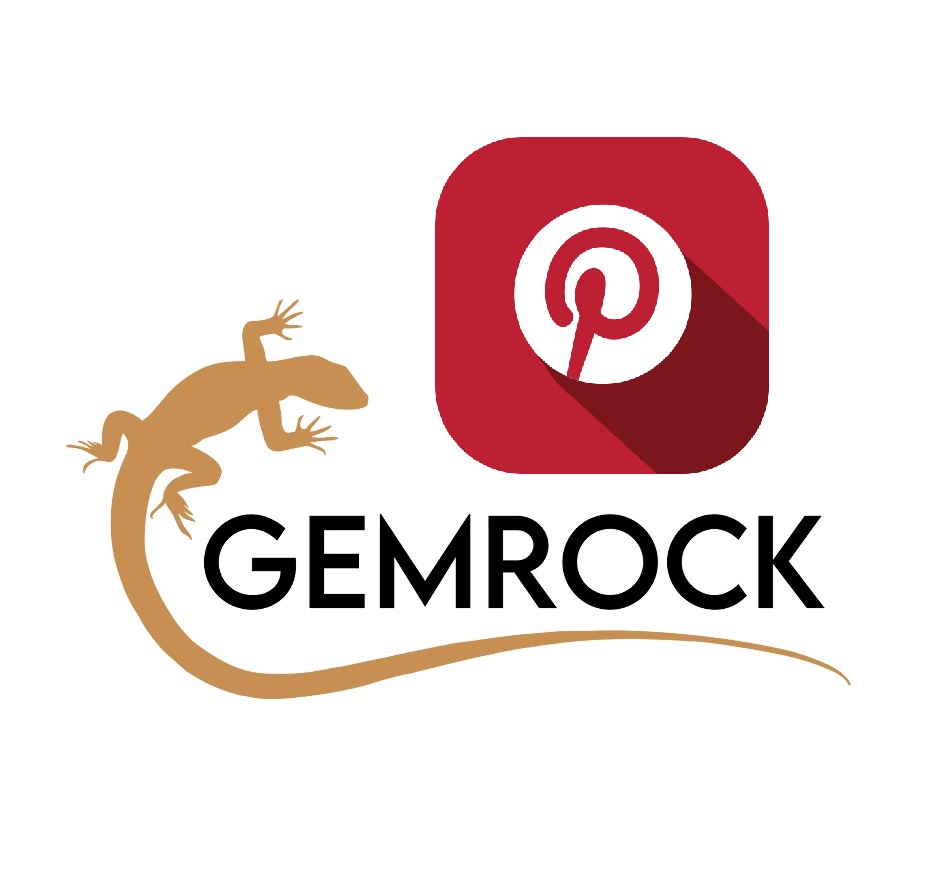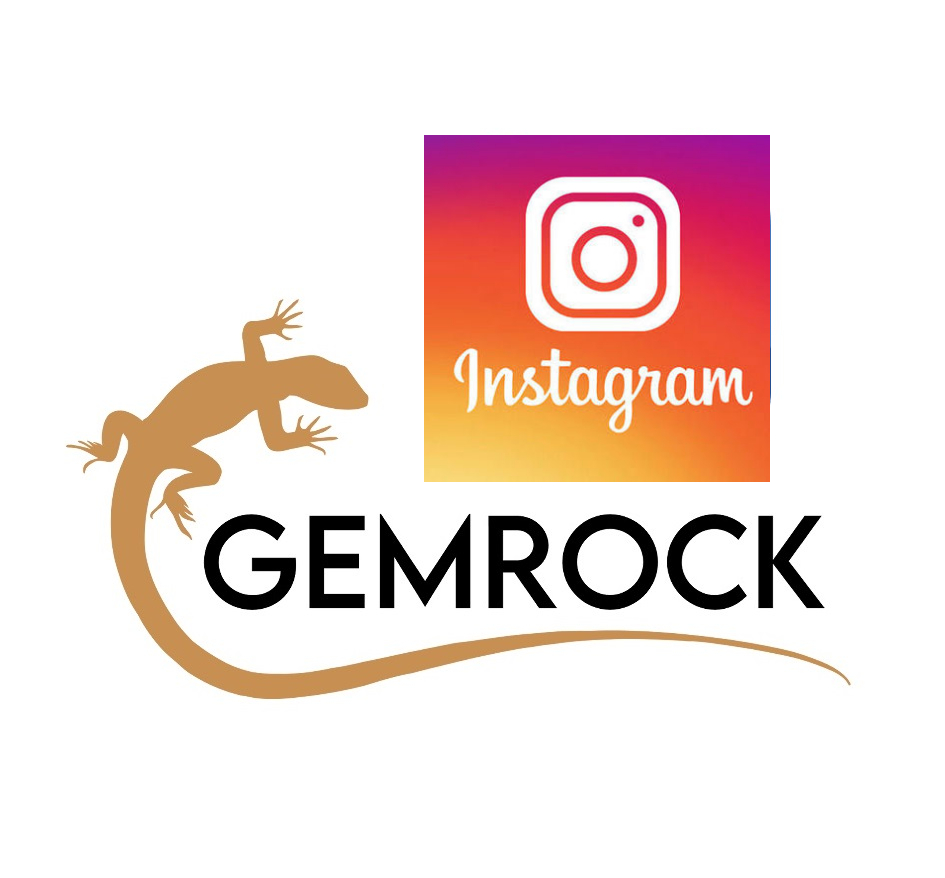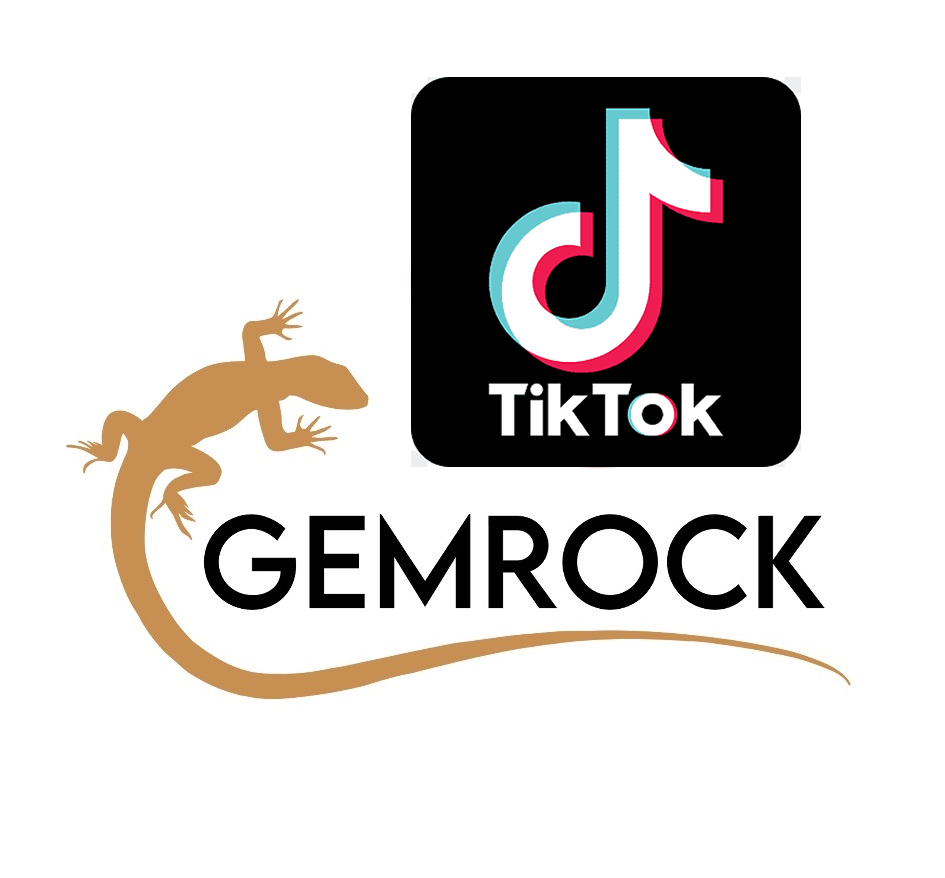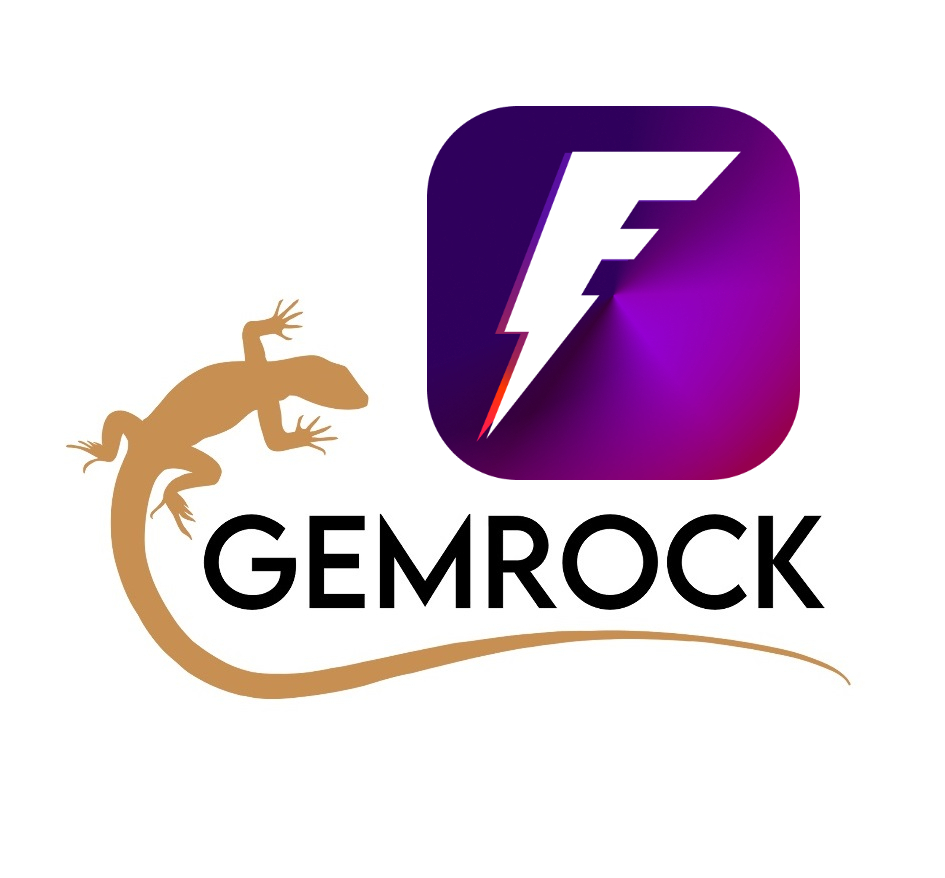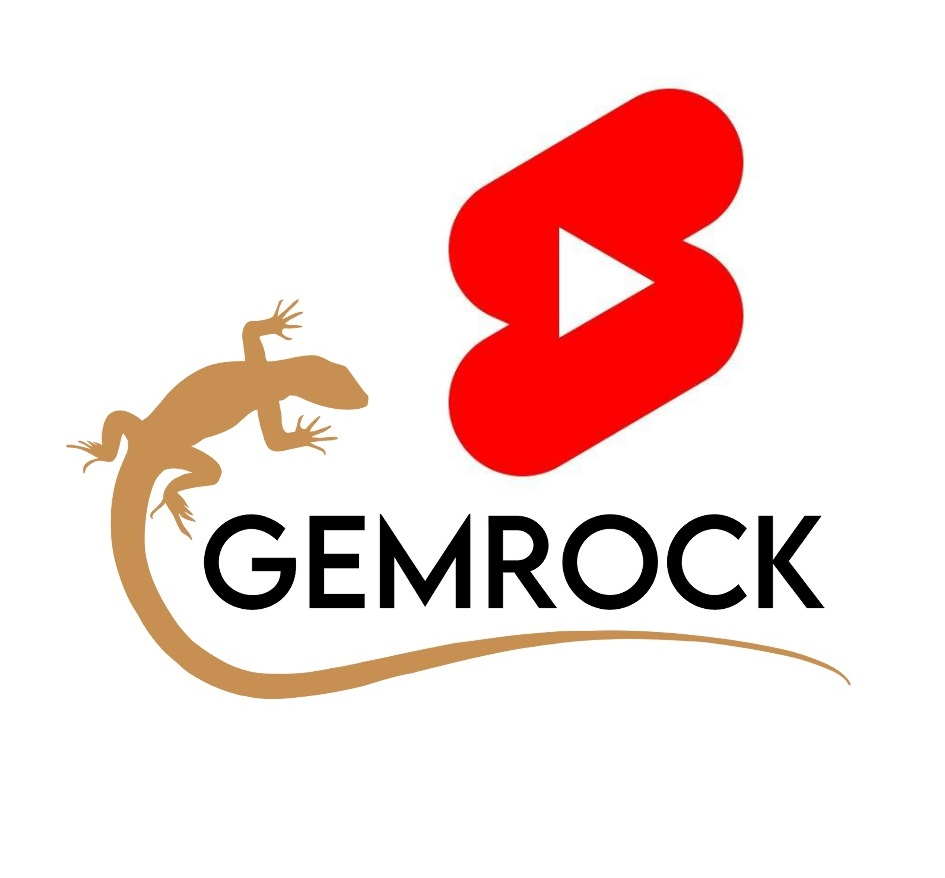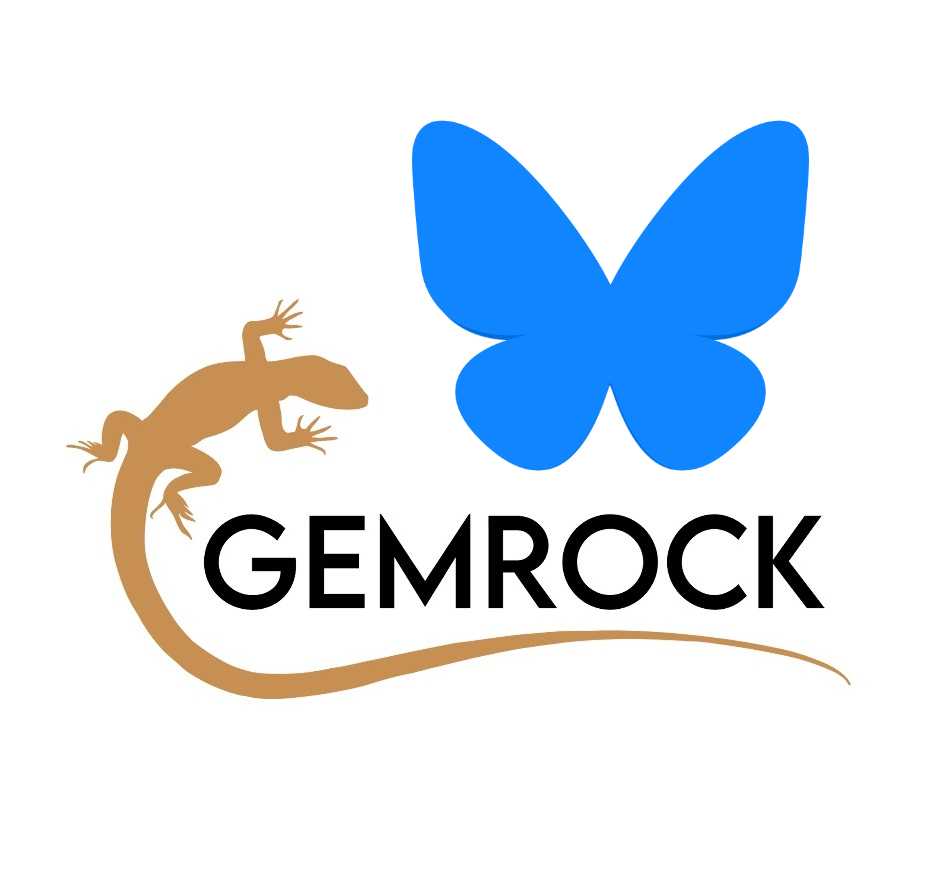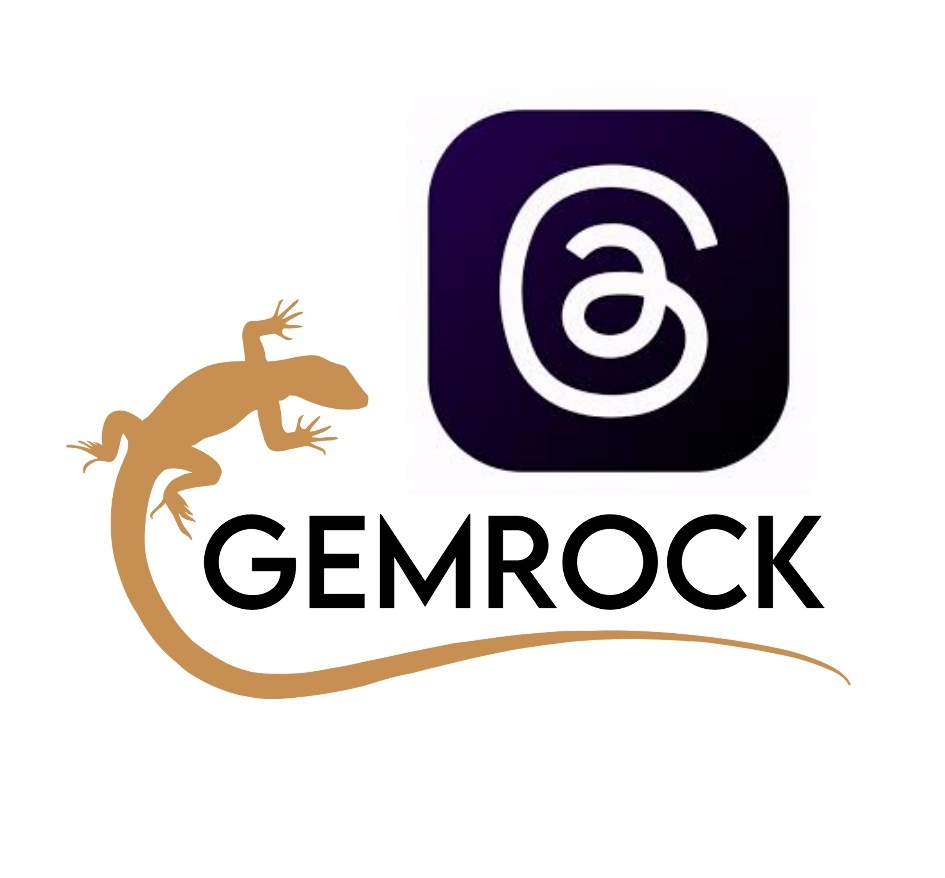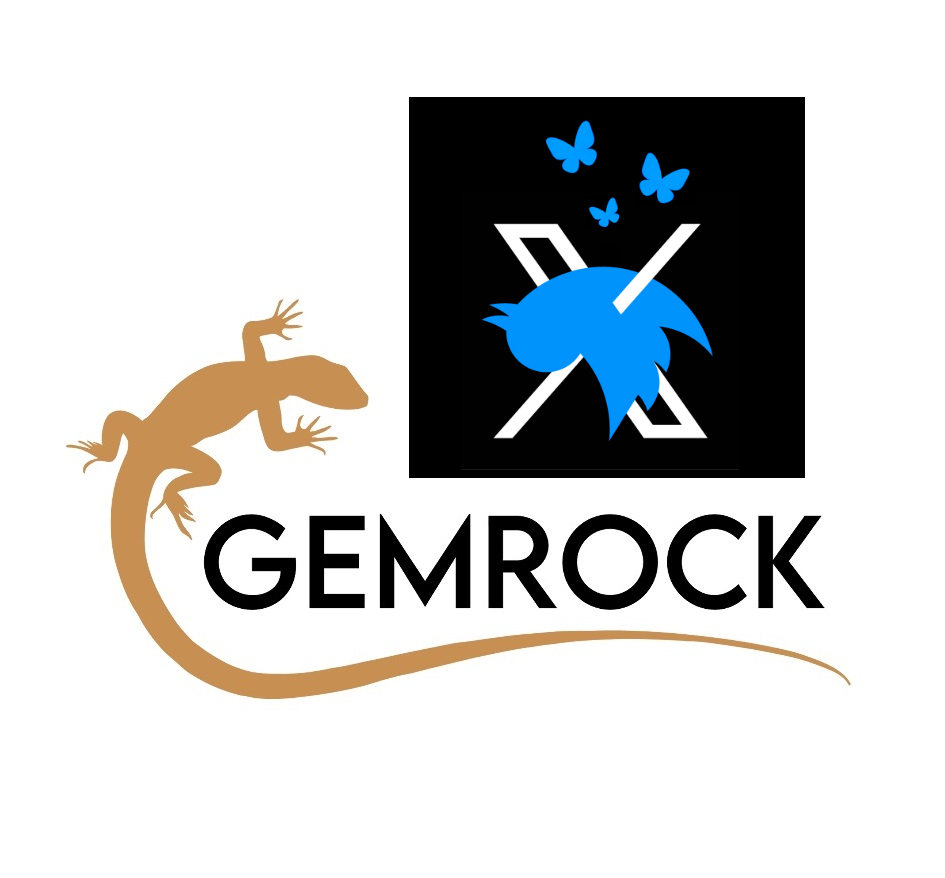Peruvian Pink Opal
Gemstone Quality Standard
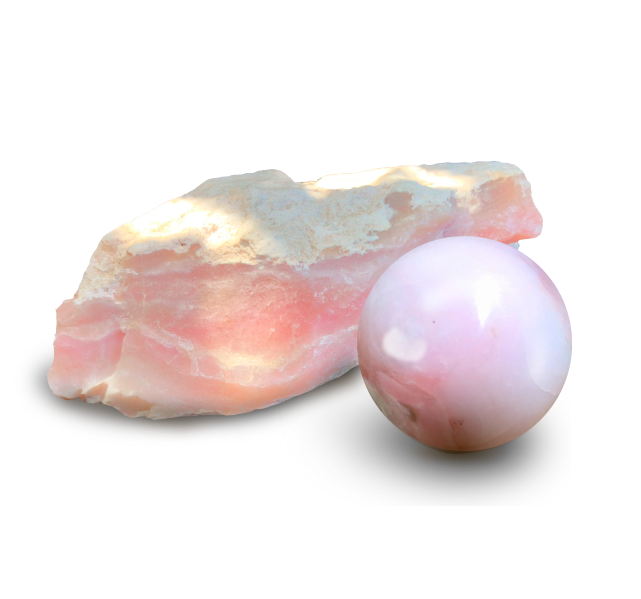
About Peruvian Pink Opal
Even though pink opal is classed in the group of “common” opals (because it does not show an internal play-of-color but is of opaque color), there is nothing common about pink opal. In fact, pink opal is a very rare color variety of opal only found in the Peruvian desert and actually is only found in a small area of a few hills near Ica, Peru.
Opal is a hydrated amorphous form of silica; its water content may range from 3 to 21% by weight but is usually between 6 and 10%. Because of its amorphous character, it is classed as a mineraloid, unlike crystalline forms of silica, which are classed as minerals. It is deposited at a relatively low temperature and may occur in the fissures of almost any kind of rock. Opal is softer and more easily chipped than most other popular gemstones. It has a hardness of about 5.5 to 6.0 on the Mohs hardness scale.
Pink opal veins range in thickness from half a centimeter to a maximum of 6 cm, most commonly at around 1 to 2 cm of thickness.


Rarity
Pink Opal occurs only in Peru. In Peru, it is restricted to a small number of hills in the southern coastal desert near the city of Ica. Pink opal veins are very thin (0.5 to 6 cm, occasionally bubbles of up to 20 cm thickness). Top-quality jewelry-grade material appears in veins of 0.5 to 1.5 cm of thickness only. A good mine may produce a few kilograms of top-quality jewelry-grade opal per month.


Pink Opal Quality Grading
Pink Opal Quality-grading is a topic that awakens strong feelings, because there are many opinions about it. A classical approach to grading is to value uniformly colored “angel skin” pink opal as the most valuable one. This comes from the use of this opal in gold jewelry. This point of view discards all other color variations as less valuable.
While we agree to the idea high value of top-quality angel skin opal, we do believe that other color combinations may be equally beautiful and sometimes they are even rarer than angel skin opal. In our view “value” comes from a combination of beauty and rarity. While rarity is measurable, beauty is a criterion of personal taste. Therefore, our standard should be taken as a proposal being open for debate.
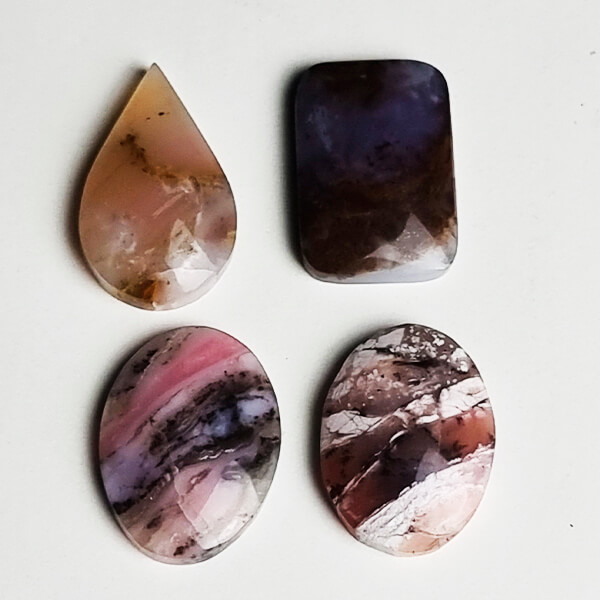
Pink Boulder Opal
The biggest part of Pink Opal being mined belongs to this quality. It is a mix of opal in many colors from white to brown to shades of pink to black, often mixed with rock matrix. This material is mostly used for decor carvings like spheres, palmstones, hearts etc., because it comes in layers that are several cm thick. One could be of the opinion that this material is not worth using for jewelry. However, a trained jewellers eye can find amazingly beautiful color combinations in this material that make for stunning cabochons. But of course this is a selection process that will discard at least 80 percent of the rough rock and look for these small bits and pieces that stand out.
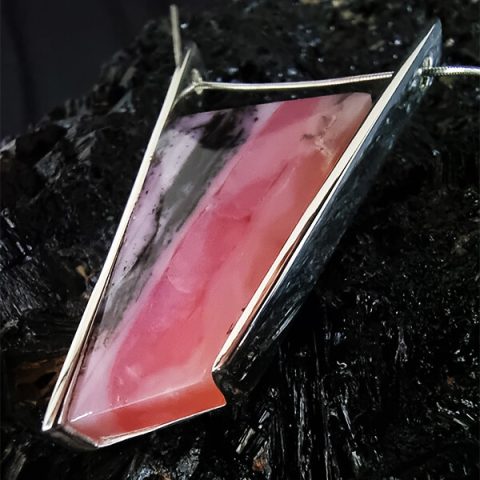
“Bubblegum” Pink Opal
“Bubblegum” Pink opal is one of those boulder opal combinations that stand out. “Bubblegum” Pink Opal is a combination of very strong layers of pink with black and white. It is very rare to find and makes for stunning pieces of jewelry.
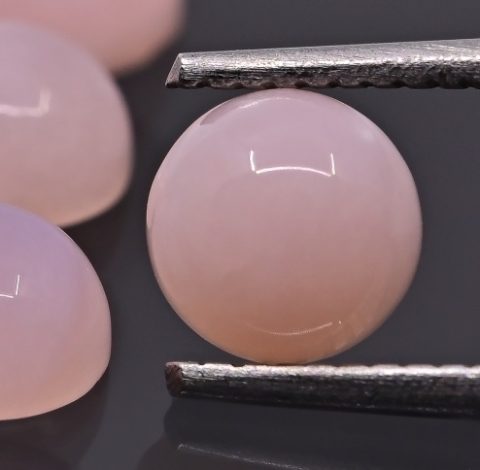
Top Quality “Angel Skin” Pink Opal
Top-quality “Angel Skin” Pink Opal is absolutely uniform rose-colored Opal. There are no color shades, and no irregularities. A material being so perfectly uniform colored is very rare. This material can fetch prices of 1000 to 2000 USD per kilo rough rock bought in the mine.
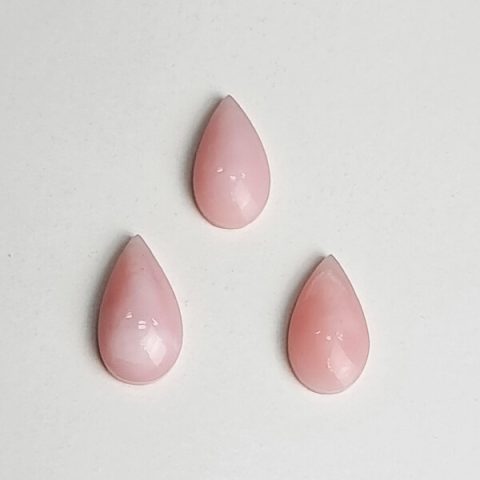
“Angel Skin” Pink Opal
Most “Angel Skin” Opal shows shades of more or less intense rose-color and is thus considered less valuable. Still, it makes for beautiful jewelry.

Pale Pink Opal
Pink opal that reaches from near white to strong rose-colored (but including black impurities and shades of lesser color or white).
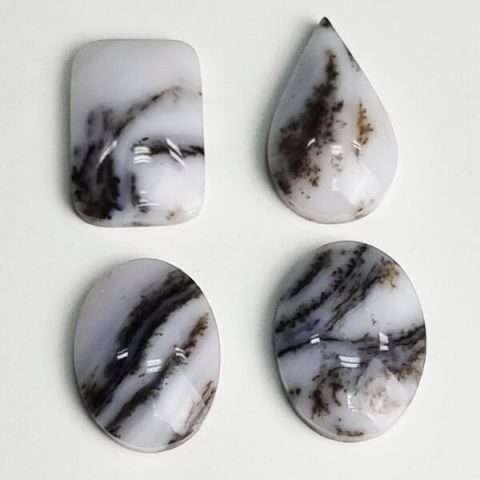
Dendritic Pink Opal
Dendritic opal can come in any kind of color from plain white to strong rose-colored. In general terms, dendritic opal is not rare. However dendritic patterns, like in the cabochons shown here, are very rare. They are also very beautiful and therefore, should fetch a price that corresponds to their rarity and beauty, even if they are rather white than pink.
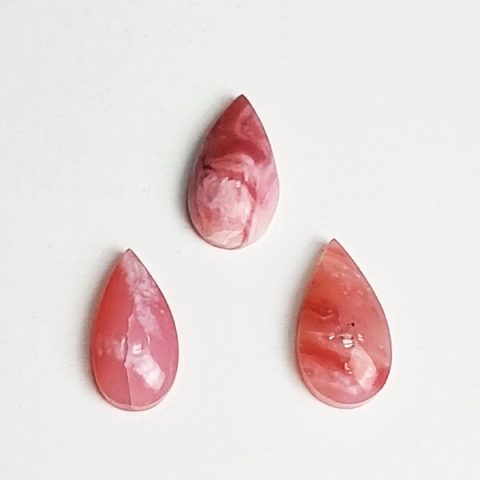
Dark Pink Opal
Dark pink opal is much rarer even than top-quality Angel Skin Opal. Maybe because of that it is also only known to a few people and generally spoken not very frequently used for jewelry.
You can buy our finished top-quality cabochons for jewelry makers.
National and international shipping from our US-based warehouse.


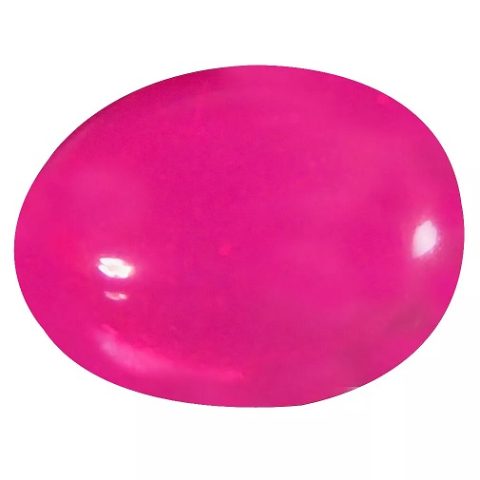
Beware of fake Pink Opal
Whatever this may be (picture!), it is not Pink Opal. If you see a pink that is as pink as this, in fact its not Pink Opal, don’t buy it.


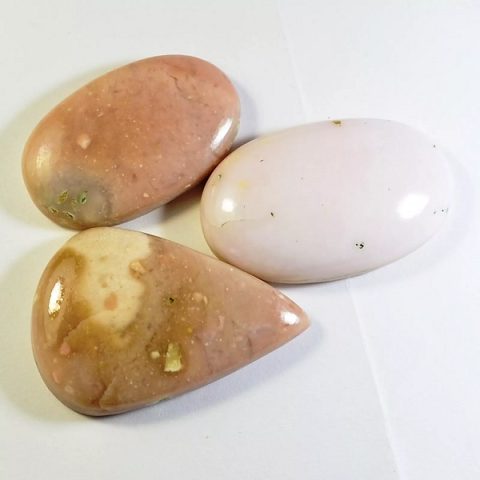
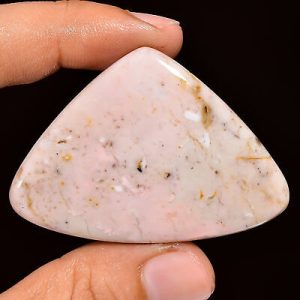
Beware of unsuitable raw material
Color is not everything. Microscopic structure is more important. There is some opal on the market that is not only unsuitable for jewelry but for any polished product. This opal has a porous structure and will never polish well, no matter what you do. If you can’t feel the piece because you buy online, watch out for an opal that is kind of brownish or the pink looks similar to the pink of a yogurt. Just watch the pictures – there is no good polish on these stones. Stay away from that material.


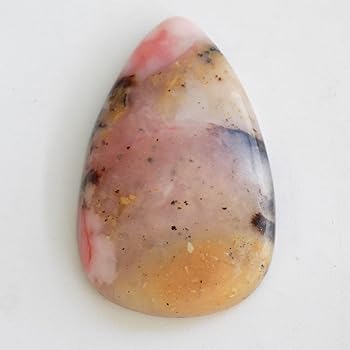
Beware of bad quality
As we pointed out above, even Boulder Pink Opal can make for beautiful jewelry. However, we also pointed out that, in order to find those beautiful boulder opal pieces, it needs a trained eye and requires to discard 80 percent of the Boulder Opal rock which simply does not have the quality for jewelry. The unsuitable majority of the material is full of pores, holes, impurities, and has often a very ugly color. Here are a few examples, which should have never been used for cabochon cutting, because they are just not worth it.
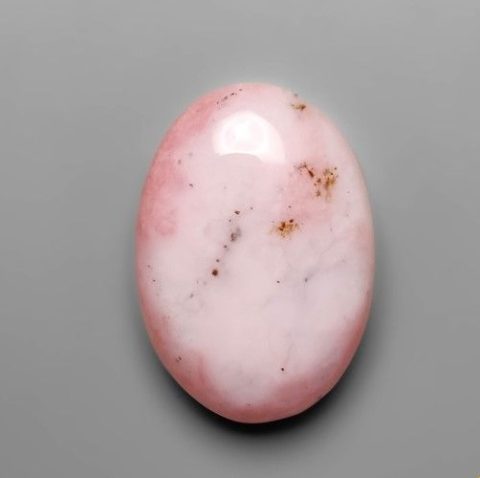
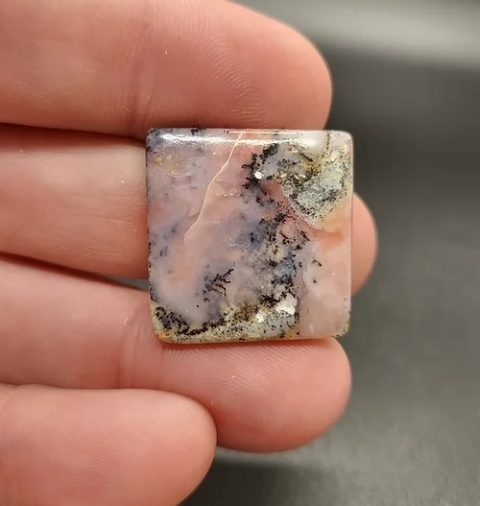
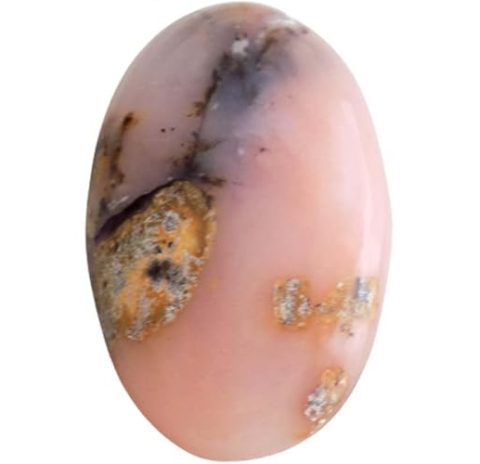
Beware of wrongful quality grading
Sadly, with a stone like Pink Opal having a huge variety of color combinations and material qualities, the uninformed buyer is fair game to all kinds of scams. Selling unsuitable cabochon material and worst-ever cutting quality as AAA+ top-quality is sadly the rule instead of an exemption.
The majority of sellers do misinform the clients. A good part of them may not even know themselves, but many do because they know that they buy as cheap as possible. In the crystal industry “cheap” always means bad quality and unethical production. You may like this statement or not.
It is time for an objective quality standard like ours. It may not be perfect and is open to improvement, but it is a first step in the right direction. Do not trust any grading method, if it is not backed up by a clear explanation of the criteria being used for classifying.


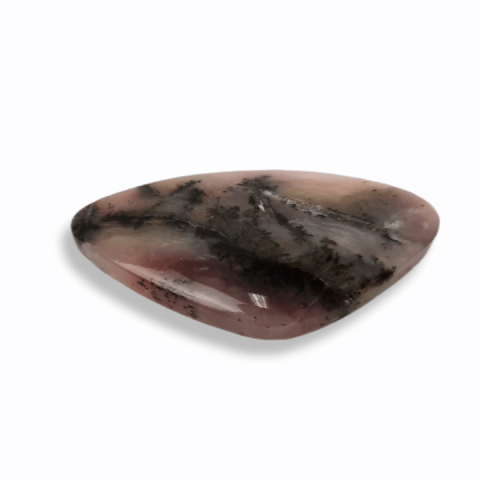
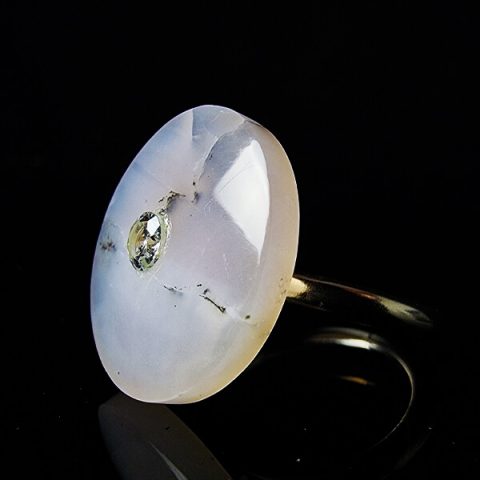
Cutting Quality
Polishable
Pink Opal can be polished to glass finish.
Advantages:
Pink Opal does not tend to break or chip. Experienced cutters therefore can obtain very sharp unchipped edges between the backside and bezel as well as between the bezel and dome.
Top-cutting-quality is characterized by:
- a polished backside
- a sharp unchipped edge between the backside and the bezel
- a very straight and even highly polished bezel
- a sharp unchipped edge between the bezel and the dome
- a well-shaped dome, not showing any deformation
- Top-quality polish


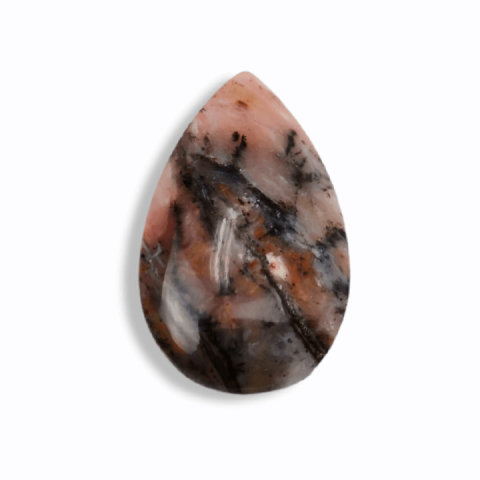
Pricing
Adequate pricing must take into account the cost factors to obtain top-quality cabochons:
- Acquisition of top-grade material with strong color in the mine.
- Selection of material without impurities and discarding more than 80 percent of the rough rock as unsuitable for jewelry.
- A usual material loss of approximately 90 % of the selected material during the cutting and shaping process.
- The level of experience required by a cutter to produce a flawlessly shaped and highly polished cabochon.
You can buy our finished top-quality cabochons for jewelry makers.
National and international shipping from our US-based warehouse.
- Market research
- Our Jewelry Grade (A)
- Our Top-Quality Jewelry Grade (AA)
- Our Premium Jewelry Grade (AAA)
The data in this sheet has been compiled by reviewing a great number of websites and sales platforms.
Material quality:
In the case of Pink Opal there are all kinds of materials on the market from the crappiest of crap that never should have been considered for jewelry (but is sold as AAA+ quality) to real top-quality jewelry-grade material. If you want to avoid being scammed, we recommend using our quality standard.
Cutting quality:
Most “cabochons” on offer show low cutting quality. Very frequently cabochons are cut with rounded corners (similar to a palmstone) which do not show any bezel.
Quality Grading
Most cabochons were offered as AA or AAA quality, which obviously does not represent the reality. Given the fact that there is no commonly accepted grading standard AA and AAA gradings are used as a marketing strategy without reflecting a real criterion of quality. This type of marketing must be viewed as misleading.
Pricing
Boulder Pink Opal was priced on average at 0.48 USD per carat. The prices ranged from 0.19 to 1.27 USD per carat. A higher price is not an indicator of better quality.
Angel Skin Pink Opal was priced on average at 3.4 USD per carat. Prices ranged from 0.60 USD per carat to 6.4 USD per carat. We found that in this case, a higher price was an indicator of better quality.
We did not find enough examples to generate valid pricing standards for other color variations like for example dendritic Pink Opal.
Jewelry-grade Material:
Boulder Pink Opal & Pale Pink Opal
Cutting Quality:
- Straight bezel (minor irregularities possible), 3 mm high
- Perfect dome (3-5 mm high)
- Edges between bezel and dome, as well as bezel and backside: sharp and crispy, minor chips on lower edge possible
- Backside flat at 280 grit, unpolished
Pricing:
Recommended Retail Price for Boulder Pink Opal and Pale Pink Opal (A): 0.69 USD per carat.
Jewelry Grade Material:
- Boulder Pink Opal
- Bubblegum Pink Opal
- Pale Pink Opal
- Angel Skin Pink Opal
Cutting Quality:
- Straight bezel, 3 mm high
- Flat and perfect dome (3 mm high)
- Edges between bezel and dome, as well as bezel and backside: sharp and crispy, minor chips on lower edge possible but very rare.
- Backside flat, at 280 grit
Additional Quality (AA+): Backside polished to 3000 grit
Pricing:
Recommended Retail Prices:
- Boulder Pink Opal: 2 USD per carat
- Bubblegum Pink Opal: 3 USD per carat
- Pale Pink Opal: 2 USD per carat
- Angel Skin Pink Opal: 3 USD per carat
- Dendritic Pink Opal: 4 USD per carat
For AA+ quality add 20 cents on top of each of the above prices per carat.
Jewelry Grade Material:
- Bubblegum Pink Opal
- Top-Quality Angel Skin Pink Opal
- Dendritic Pink Opal
Cutting Quality:
- Only cut by our best master cutters
- Straight bezel, 3 mm high
- Flat and perfect dome (1-3 mm high)
- The edges between the bezel and dome, as well as the bezel and backside, are sharp and crispy, with no chips on the lower edge.
Additional Quality (AAA+): Backside polished to 3000 grit
Pricing:
Recommended Retail Prices (AAA):
- Bubblegum Pink Opal: 5 USD per carat
- Top-Quality Angel Skin Pink Opal: 6 USD per carat
- Dendritic Pink Opal: 6 USD per carat
For AAA+ quality add 50 cents per carat on top of the prices above.
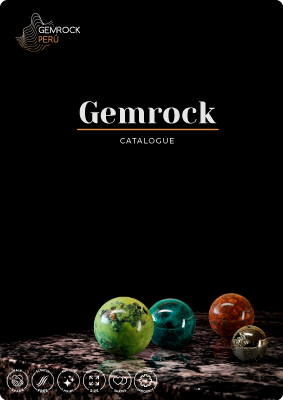
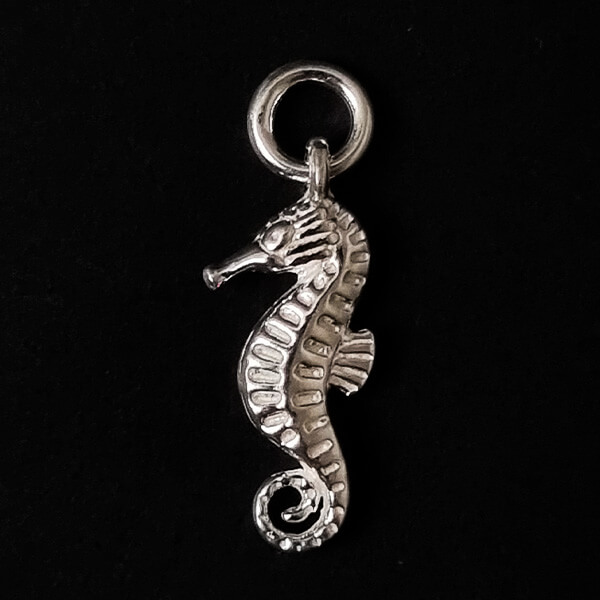
For Charms & Pendants
Ethical Silver Accessories
for Jewelry Makers
Hundreds of charms, pendants & chains
in
950 Silver, Sterling Silver, tarnish-resistant Moonlight Sterling Silver, gold-plated silver and gold.
Guaranteed Free of toxic alloys.
How to avoid fake & toxic silver:
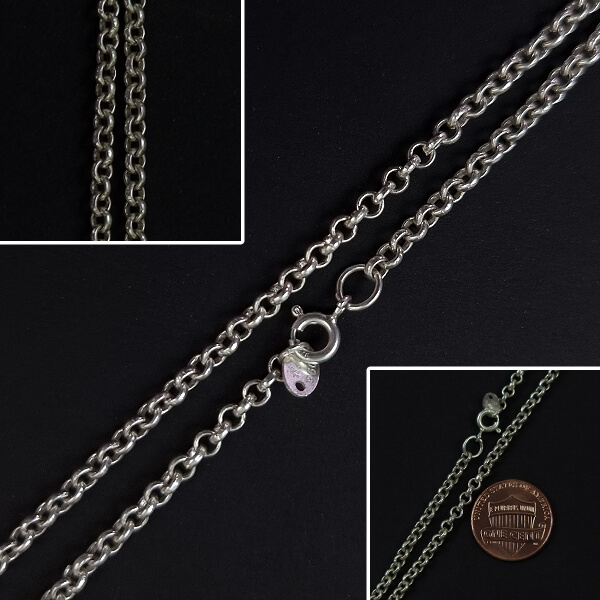
For Chains
Top-quality Pink Opal Jewelry
As of 2025 Gemrock in cooperation with our associated gold- and silversmith Herdel SAC offers you a huge variety of top-quality crystal jewelry in gold and silver.
Apart from our designs, we offer personalized custom jewelry production for everyone (shops and retail clients). Contact us:
Shop your crystals & jewelry NOW
NATURA MINERA
Achetez vos cristaux Gemrock, produits en cristal et bijoux à Québec
GEMROCK CANADA
Online retail shop of ethical, top-quality crystal specimens, jewelry, and jewelry-maker accessories like cabochons, silver chains, silver wire, and charms. Exports to USA.
Gemrock Peru - Tienda
Venta de cristales naturales, piedras talladas y joyería de Gemrock en Peru a nivel nacional.
Cutting services
Do you need reliable high-quality cutting services for a reasonable price? Are you looking for a service provider that is willing to develop new products according to your requirements? Would you like to get expert advice in order to improve your product? Do you wish for someone to optimize the process and get the most out of your rough? Just talk to us.
Free Gemrock Learning Resources
Free Gemrock Learning Resources
Connect wherever you want and can
Connect wherever you want and can
Get in Touch
+51 994104206
gemrockinternational@gmail.com
